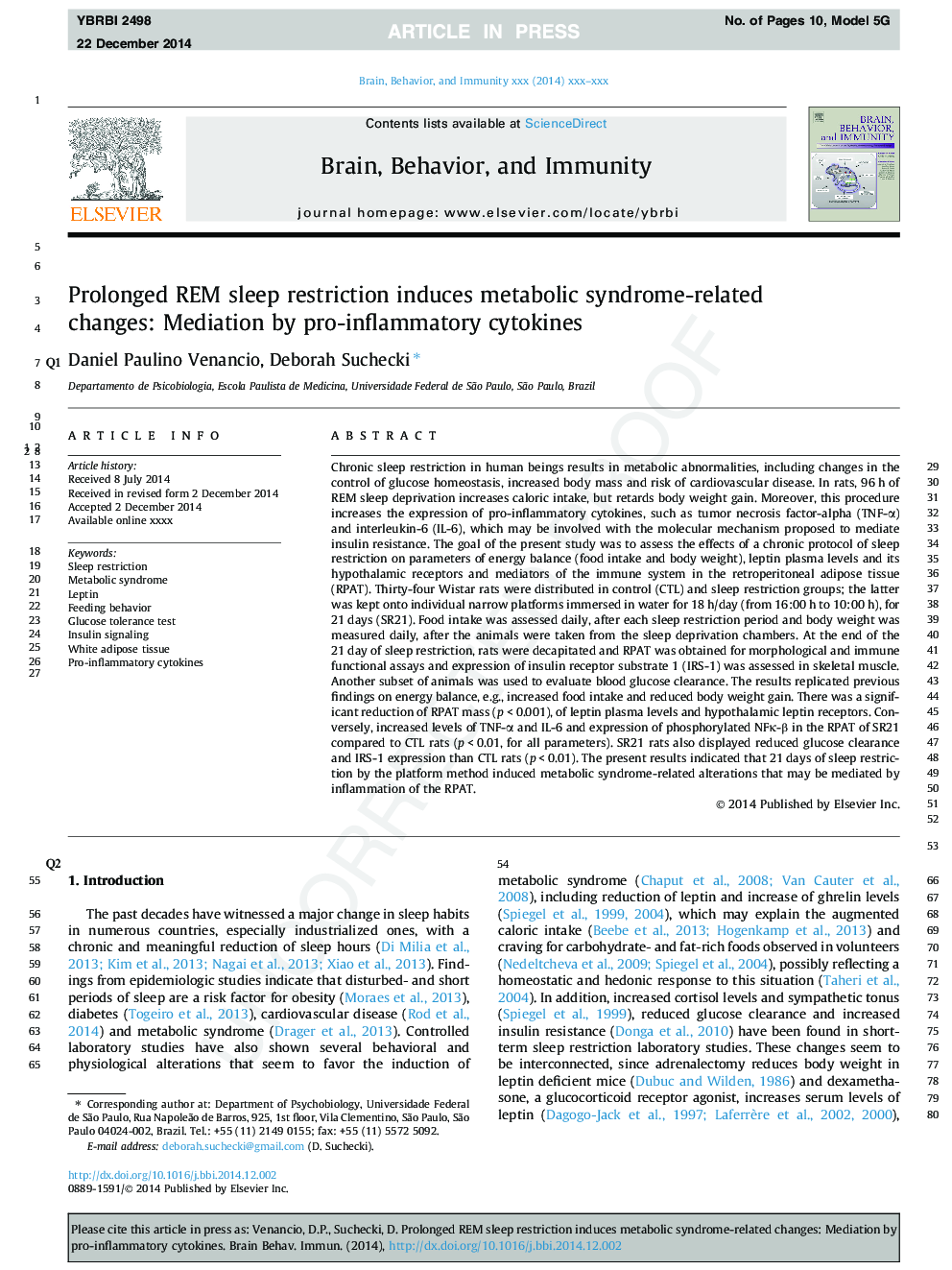| Article ID | Journal | Published Year | Pages | File Type |
|---|---|---|---|---|
| 7281042 | Brain, Behavior, and Immunity | 2015 | 10 Pages |
Abstract
Chronic sleep restriction in human beings results in metabolic abnormalities, including changes in the control of glucose homeostasis, increased body mass and risk of cardiovascular disease. In rats, 96 h of REM sleep deprivation increases caloric intake, but retards body weight gain. Moreover, this procedure increases the expression of pro-inflammatory cytokines, such as tumor necrosis factor-alpha (TNF-α) and interleukin-6 (IL-6), which may be involved with the molecular mechanism proposed to mediate insulin resistance. The goal of the present study was to assess the effects of a chronic protocol of sleep restriction on parameters of energy balance (food intake and body weight), leptin plasma levels and its hypothalamic receptors and mediators of the immune system in the retroperitoneal adipose tissue (RPAT). Thirty-four Wistar rats were distributed in control (CTL) and sleep restriction groups; the latter was kept onto individual narrow platforms immersed in water for 18 h/day (from 16:00 h to 10:00 h), for 21 days (SR21). Food intake was assessed daily, after each sleep restriction period and body weight was measured daily, after the animals were taken from the sleep deprivation chambers. At the end of the 21 day of sleep restriction, rats were decapitated and RPAT was obtained for morphological and immune functional assays and expression of insulin receptor substrate 1 (IRS-1) was assessed in skeletal muscle. Another subset of animals was used to evaluate blood glucose clearance. The results replicated previous findings on energy balance, e.g., increased food intake and reduced body weight gain. There was a significant reduction of RPAT mass (p < 0.001), of leptin plasma levels and hypothalamic leptin receptors. Conversely, increased levels of TNF-α and IL-6 and expression of phosphorylated NFκ-β in the RPAT of SR21 compared to CTL rats (p < 0.01, for all parameters). SR21 rats also displayed reduced glucose clearance and IRS-1 expression than CTL rats (p < 0.01). The present results indicated that 21 days of sleep restriction by the platform method induced metabolic syndrome-related alterations that may be mediated by inflammation of the RPAT.
Keywords
Related Topics
Life Sciences
Immunology and Microbiology
Immunology
Authors
Daniel Paulino Venancio, Deborah Suchecki,
